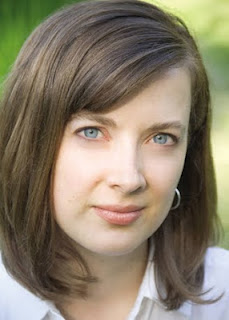
For the majority of her life, Andrea Palpant Dilley, '00, was surrounded by Christian influences. She spent her childhood in Kenya raised by Quaker missionary parents before moving to Spokane, where she was active in a Presbyterian youth group and later attended Whitworth University. Yet when she reached age 23, she says, “I stepped over the threshold of the church and walked away. I had no idea if I would come back.” Dilley has since returned to the faith, and decided to chronicle her struggles in a new memoir, “Faith and Other Flat Tires: Searching for God on the Rough Road of Doubt.”
Dilley said in a press release, that although struggling with faith is common, people often hide and stigmatize their own doubt. She cites Job, Lamentations, and the Psalms as illustrations of doubt being a healthy part of faith. Dilley wanted to normalize that struggle by sharing her story with others who might be going through similar experiences.
“As I correspond with readers, I've been surprised by the diversity of people who seem to resonate with the story: college students trying to figure out faith, retirees reflecting back on their own stories, and people in life stages in between,” Dilley says. “Even readers with no religious affiliation have connected with the book. Recently, a young woman sent me a letter in which she described herself as a 'worn-out theist' who felt like the book offered solidarity in the ongoing struggle of the human condition. This book is written for her, and for anyone who's ever wrestled with questions of doubt, faith, and belief in God.”
Though only recently released, “Faith and Other Flat Tires” has already received praise from pastoral and academic critics alike. Steve Sherwood, assistant professor of Christian ministry at George Fox University, says, “We are in need of people like Andrea, who do not shy away from their questions and doubts.”
Dilley says attending a Christian college influenced her spiritual struggle in various ways.
“In some ways it prompted me to resist my surroundings, to push out beyond the bounds of that space. I wanted to find out what the world looked like if I walked out the doors of the church,” she says. “But at the same time, I was surrounded by really smart, thoughtful Christians who listened to my questions, affirmed my search, and walked with me in my growing faith crisis. I imagine that—had I attended a secular university—that mentorship experience might have been qualitatively different. I might have felt less equipped for and lonelier in my journey through doubt.”
Although Dilley left the church, she says she never fully left the faith. Rather, she says, her beliefs went underground for a period of time as she stepped outside the Christian community.
“I rediscovered my beliefs not through a road-to-Damascus epiphany, but through darkness,” she says. “But then, after two years of spending time with people who didn't talk about faith, philosophy, or metaphysics, I became more dissatisfied with churchlessness than with church. I felt alone with my struggle. My angry questions about God didn't even have a place at the table. After a time, I realized that my doubts and questions belonged inside the sanctuary. They only made sense in a theistic framework. Paradoxically, my doubts about faith actually brought me back to faith and back to church.”
Dilley says while nothing can fully prepare someone for writing a book, spending four years writing English papers at Whitworth prepared her for what's required: solitude, research, and the grueling discipline of writing daily, according to a press release.
“The inspirational muses don't come flitting into the room,” she says. “You force them to come through habit and consistency.”
Dilley encourages college students struggling with their faith to resist settling into that doubt. Push into it, she says. Try to see it as an outgrowth of your longing for God. Sift through evidence and ideas.
“Talk to professors and priests, atheists and agnostics,” she says. “Read books. Ask hard questions. Even if you can't find answers, ask which worldview dignifies and affirms the questions themselves. In my experience, Christian theism most deeply validates questions about suffering, longing, and doubt. With that in mind, bring your questions inside the space of the church. Stay in community with other pilgrims.”
She continues, “Try to accept that none of us, regardless of our worldview, will have complete answers to all of life's deep questions. The German poet Ranier Maria Rilke wrote in his Letters to a Young Poet, 'Live the questions now. Perhaps then, someday far in the future, you will gradually, without even noticing it, live your way into the answer.'”
On Sept. 21, Dilley will give a public reading of Faith and Other Flat Tires at Whitworth's Robinson Teaching Theatre at 7 p.m. Admission is free. Copies of the book will be available for purchase, and after the reading Dilley will sign autographs.
Dilley graduated from Whitworth in 2000 with degrees in English writing, literature, and Spanish. She is a documentary producer whose work has aired nationally on American Public Television. Her writing has appeared in Rock and Sling, Geez Magazine, Utne Reader, and most recently on CNN.com. She is the recipient of Whitworth's 2009 Young Alumni Award and has collaborated with Whitworth to produce the documentaries In Time of War, Art in Me, and A Portrait of Leonard Oakland.






